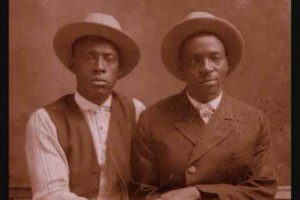 Can God cast a good man to Hell for not being a Christian? That is to say, not simply a man who does good things out of obligation or expectation, but rather one who acts from the goodness of his heart, a man (or woman) who has never heard of the name Jesus, or perhaps has heard but has not understood His word enough to adopt it as his own, and yet from the goodness of his heart live his life in the way that Christ would have had him live it ? Will a just and loving God send such a person to Hell, or will He who can do no evil judge such a person according to the purity of his heart and the Christ-likeness of His character? I let the Bible the answer:
Can God cast a good man to Hell for not being a Christian? That is to say, not simply a man who does good things out of obligation or expectation, but rather one who acts from the goodness of his heart, a man (or woman) who has never heard of the name Jesus, or perhaps has heard but has not understood His word enough to adopt it as his own, and yet from the goodness of his heart live his life in the way that Christ would have had him live it ? Will a just and loving God send such a person to Hell, or will He who can do no evil judge such a person according to the purity of his heart and the Christ-likeness of His character? I let the Bible the answer:
“For as many as have sinned without law will also perish without law, and as many as have sinned in the law will be judged by the law (for not the hearers of the law are just in the sight of God, but the doers of the law will be justified; for when Gentiles, who do not have the law, by nature do the things in the law, these, although not having the law, are a law to themselves, who show the work of the law written in their hearts, their conscience also bearing witness, and between themselves their thoughts accusing or else excusing them) in the day when God will judge the secrets of men by Jesus Christ, according to my gospel.” (Romans 2:12-16)
So this the truth: no person with a pure enough heart to keep the Spirit of God’s commands, whether he knows or understands them or not, can be turned away from His eternal kingdom because such a person can only be of that Kingdom. Christ’s own words, as we previously detailed, testify to this fact explicitly, more than once. For indeed, to show the work of God in one’s heart is to show the work of Christ, whether one is baptized in His name or not. For does that righteousness come from the devil? How then could it be any other way?
Having said all this, it is legitimate to ask how one should go about preaching the gospel if the lynchpin of such preaching is not Christ as the only path to salvation. That is, it is a legitimate question, but a flawed one, because Christ, rather the Spirit of Christ, remains man’s only path to salvation. But given that our relationship to God and Christ is a spiritual one, that our walk with God is a spiritual one, our belief in Christ and our walk with God must bear supremely moral and spiritual fruits in our own beings and our own actions. It is therefore the faith in the Love that is the source of these good works and these spiritual fruits within ourselves that we must understand to be the point of our believing in Christ in the first place. In other words, the point of Biblical teaching, when all is said and done, is to teach us how to love God, and even at that, to teach us to love one another as we love ourselves in so doing. The very life of Jesus makes this abundantly clear. As Paul said, “Imitate me, just as I also imitate Christ.” (Corinthians 11:1) For the outward profession of faith in Christ is only the beginning of the Christian walk with Jesus and if one does not grow beyond that beginning one has never started the journey at all. For to truly be saved is not merely to profess belief, nor is it to believe as a mere matter of fact. Rather it is to embody in all one’s being the teaching’s of Christ and his disciples. Needless to say that is not easy. It requires the whole relinquishing of oneself to God, to the Spirit of love which subdues all feelings of arrogance, bitter or vindictive anger, lust, self-pity, hatred, and perhaps most of all: fear. The great classical philosophers; Socrates, Plato, Aristotle, understood that the true aim of life is to obtain an inner fulfillment which allows one to see the world in a manner unimpeded by the corruptions of our wayward desires and emotions, our flesh in Biblical parlance. Indeed this falls in line with that which the scripture teaches, yet in acknowledging and focusing on God as the spiritual source of such peace scripture gives us a way of focusing on it clearly in our hearts and our minds which makes the gift and instrument of faith the indispensable element in our making ourselves more content, more moral people and for making our world a more peaceful, more moral world.In believing that a spiritual force of love and goodness is the Source of all things, ourselves included, we receive a confidence in the power of that moral force to prevail against all forces that oppose it and truly man needs that faith to persevere into the future in a moral way. So then must we do as Christ taught us:
1.We must love God will all our heart, soul and mind, understanding that God is Himself the Spirit of love as the apostle John shows. To truly be saved in Christ is to love love, acknowledging that God is love. This sincere belief changes the entire way a man looks at the universe and his place in it. All discord can be seen as part of a greater harmony, dissonantly moving towards a harmonious end.
2. We must love our neighbors as we love ourselves. So too must we love our enemies, earnestly praying for them and not out of obligation but from a truly caring heart. To that point, we must know ourselves well enough to realize that we all long to be understood and to be forgiven for our flaws, our imperfections. But because man does have a conscience and because God and the laws of the universe ultimately demand balance in all things, one cannot be inspired to think himself worthy of God’s grace if he does not extend such grace to others.
3. We must forgive others, no matter how many times they sin against us. For grudges poison the world don’t they? But to the degree to which we cannot forgive others is the degree to which there is something for which have not forgiven ourselves because we have not accepted the forgiveness of God. We are not open to it because we hate something within us and that hatred extends itself outward to everyone and everything in which we see something similar. Our outer attitudes reveal the spiritual wounds we hold within.
4. We must not judge others, for the judgment with which we judge is how we shall be judged. Indeed there is a paradox here, for we cannot help but make judgments and have our subjective opinions. But to allow God to judge through us, we judge from the Holy Spirit of God’s love and understanding, understanding therefore that righteousness judgment looks to acknowledge the goodness in a person’s heart and to correct that person’s errors for the sake of that goodness. This sort of judgment (the suppression of our unrighteous, fleshly judgement in favor of the equitable evaluation of God’s love) brings people to Christ in time, for it paves the way for forgiveness.
5. We must sacrifice ourselves for the good of others, indeed not foremost the material good of others, but the spiritual good of others. This thing requires first that one live by the first elements I’ve mentioned, for if one cannot love and forgive others suppressing one’s own personal opinions about them in favor of God’s equanimity one cannot see the good in others for which he should sacrifice himself for. But the service of self-sacrifice was the center piece of Christ’s life, of any true Christian’s life (take Martin Luther King, Jr. as a telling example, and a man who did not believe that God’s eternal glory was reserved for Christians only). For even beyond the written commandments of the Bible we have a living illustration of God’s righteousness in the life, and death, and resurrection of Jesus Christ. In this He saves us, for he shows us a way both to live and die that words alone cannot tell.
Salvation then is a process that consumes the entire walk of a Christian as well as of a non-Christian, and it is for us who are Christians to help others on their walk to salvation by showing them, as Christ showed us, how we come to believe in Love so as to live from Love. For to do so is ultimately to believe in God and to be reborn in Him. It is to not be afraid of the wiles of the devil or the evils of the world, for how can you fear anything when you are confident of the indispensable value of your own person to the universe? How can you fear death when your heart tells you that you have planted the seed of life in the soil of the hereafter, and that you still expect to reap them? So then when Christ tells us that that which we bind on Earth will be bound in Heaven and that which we loose on Earth will be loosed in Heaven, He is telling us that it is the sum of our works on this place that will return to us in eternity. When Christ tells us that to those who have faith, more will be given but to those who have not even the little they have will be taken away, He is telling us that the faith which we have that leads us to love earns to the love we are given that leads us to believe. What we reap in this life, as Paul says, we sow in eternity. So though it is indeed the work of God to believe in He whom He has sent, that is only the beginning of that work. For true belief brings with it the Holy Spirit, for it comes of the Spirit., and along with that the fruits of the spirit which make for a truly Holy life. So as we preach Christ we preach the path to such a life. Yet those who do not believe as we do are still punished and are still rewarded for the degree to which they live such a life, for the degree to which they have such faith and such heart to live such a life. And indeed, we already know that there have been many who have not called themselves Christians who have lived more Christ-like a lives than many of those who do. Does God discount their righteousness? Does he ignore the love they bear in their hearts for the Spirit Whom He is? Do they who fulfill the law blasphemy the Holy Spirit?
“Owe no one anything except to lvoe one another, for he who loves another has fulfilled the law. For the commandments, “You shall not commit adultery,” “You shall not murder,” “You shall not steal,” “You shall not bear false witness,” “You shall not covet,” and if there is any other commandment, are all summed up in this saying, namely, “You shall love your neighbor as yourself.” Love does no harm to a neighbor; therefore love is the fulfillment of the law.” (Romans 13:8-10)
Indeed, the whole world would be better served if all were to come to believe in Christ as the very Son and image of God, finding new life within Him. It is to the detriment of all who do not believe His words that they do not, but it so because they must now chase the light of God’s glory with a veil over their eyes. That does not mean of course that they will not find it, only that they must contend with what they do not know, as must we all. But it has never been God’s plan that all should do so in the Christian sense. Yet we may still share with others who do not believe as do we Christians the grace of the Christian message. And furthermore, we must. Indeed I write none of these words to dissuade those who read them from accepting Christ as the Lord, but rather to clarify the true quality of the God that you, should you not believe, would be accepting so that you might accept Him truly and not falsely, that others will preach Him as He truly His and not as the devil would have us believe. At the end of the day it is up to fate and the Father of the universe as to whether or not their hearts accept it or reject in the day when all our deeds are brought before us, both good and evil. But fate bodes well for all those non-believers who, though not believe, nevertheless uphold the righteous requirements of God’s commandments. For the God of conscience holds us all to account. And again Who is that God but the Love by which He seeks to bring all His children home one day in the Kingdom of Christ the Lord.
 SPEECHLESS: A Night of Pure Worship in Honor of Pastor Frank E. Wilson
SPEECHLESS: A Night of Pure Worship in Honor of Pastor Frank E. Wilson















